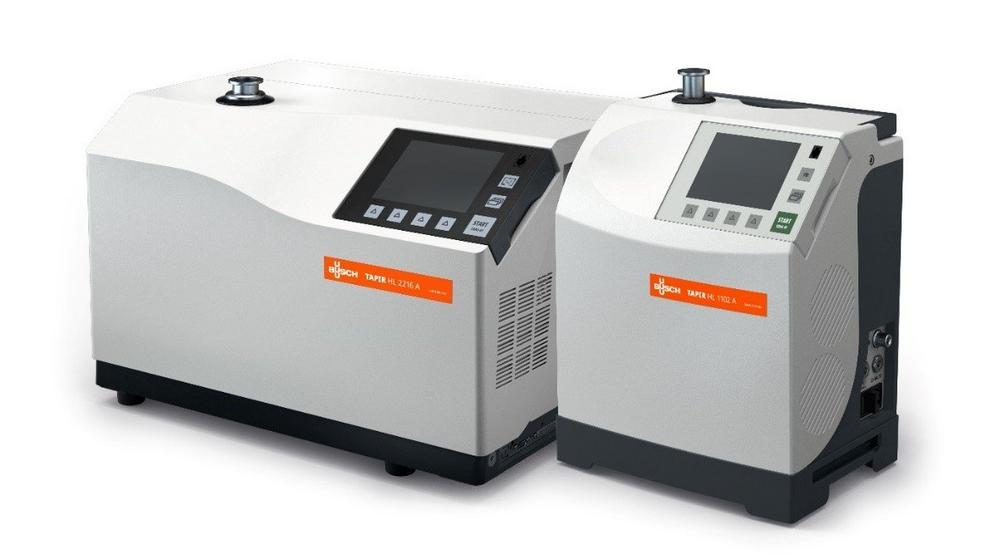The requirements for the tightness of vacuum systems and their components are growing increasingly. Leaks can pose considerable risks if gases hazardous to health or the environment escape. Moreover, leaks can worsen the economic efficiency of a vacuum system and have a negative impact on product quality. TAPIR HL leak detectors are specially designed to avoid these problems and can be used in many applications. There are two possible test methods with TAPIR HL leak detectors:
1. Spray test
The tracer gas is sprayed onto the surface of a component under vacuum. If the tracer gas molecules penetrate the vacuum component, they are suctioned in by the integrated vacuum pump and fed to an analyzer cell, where the individual gas atoms are detected, measured, and documented. The spray test has the highest sensitivity of all test methods.
2. Sniffing leak detection
In the sniffing method, a vacuum component is pressurized with the tracer gas. The outer surface of the component is scanned with a sniffer probe. Leaking tracer gas atoms can be immediately detected, measured, and documented. The sniffing method allows the exact location of the leak to be detected.
The smaller leak detector TAPIR HL 1102 A is designed for mobile applications by service technicians. The integrated dry diaphragm vacuum pump as a backing pump of the turbomolecular vacuum pump, which is also integrated, allows for compact dimensions. Due to its low weight, the device is easily portable and can therefore be used quickly at any location.
The larger multi-purpose device TAPIR HL 2216 A is designed for stationary applications, for example for routine tests in a production line. An oil-lubricated rotary vane vacuum pump with a high pumping speed acts as a backing pump here for a turbomolecular vacuum pump.
Both versions are equipped with a detachable control panel, which includes a high definition color display with touchscreen. Thanks to the built-in magnets, it can also be attached to metal supports. In the event of a leak, TAPIR either shows the leakage rate on the display or gives an acoustic signal.
All relevant data is stored on the integrated SD memory card. The data can be easily downloaded and used for documentation and post-processing of the leak test results. The menu is clearly structured and is intuitive to use. All parameter settings can be adjusted. This allows users to quickly observe the important details of their specific processes.
Busch Vacuum Solutions
Schauinslandstraße 1
79689 Maulburg
Telefon: +49 (7622) 681-0
Telefax: +49 (7622) 5484
http://www.buschvacuum.com
E-Mail: sabrina.heinecke@busch.de
![]()

